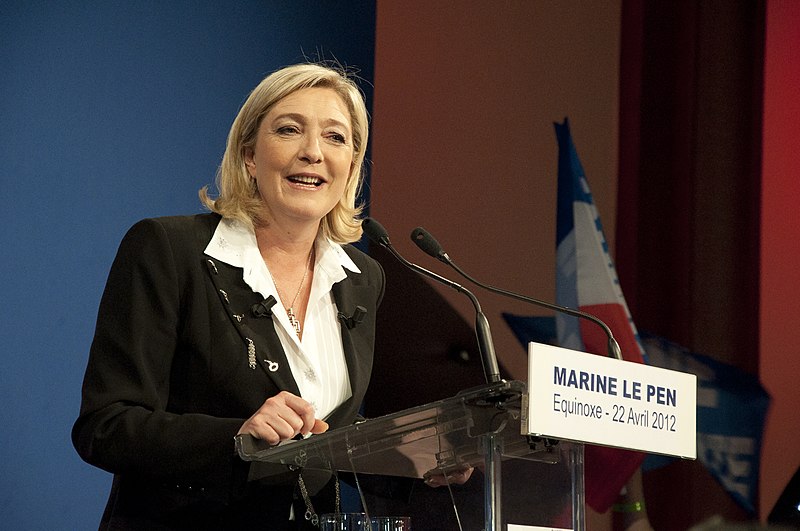
French far-right leader Marine Le Pen, along with her National Rally party and 24 other individuals, went on trial Monday, facing accusations of embezzling European Parliament funds.
The trial could potentially derail Le Pen’s political ambitions as she prepares for the 2027 presidential election.
Upon arriving at court in Paris, Le Pen firmly denied any wrongdoing, stating, “We have not violated any political or regulatory rules of the European Parliament” and promised to present strong arguments in her defense.
The trial, set to last nine weeks, is being closely watched by Le Pen’s political rivals. As a leading contender to succeed Emmanuel Macron, any verdict against her could seriously hinder her chances. Some analysts believe the trial might distract National Rally lawmakers, including Le Pen, from fully playing their opposition role in Parliament as they focus on the case.
Le Pen, who stepped down as party leader in 2021, has worked to present herself as a mainstream candidate with broader appeal, a strategy that has yielded electoral success for her party. However, a guilty verdict could severely damage her bid for the presidency, which she previously lost to Macron in 2017 and 2022.
The National Rally, previously known as the National Front, and its leaders are accused of misusing EU funds intended for parliamentary aides between 2004 and 2016. Instead, they allegedly used the funds to pay staff members working for the party, in violation of EU regulations. Le Pen denies the charges, claiming the case is politically motivated, and argues that parliamentary assistants’ roles are inherently political.
If convicted, Le Pen and other defendants could face up to 10 years in prison and fines of up to 1 million euros ($1.1 million). Additional penalties, such as disqualification from running for office, could also be imposed, further jeopardizing her political future.
The case originated in 2015 when then-European Parliament President Martin Schulz alerted French authorities about potential misuse of EU funds by National Front members. A subsequent investigation by the European Anti-Fraud Office found evidence of systemic misuse of funds, with some parliamentary assistants reportedly working for party officials in France rather than in their official EU roles.
Investigators concluded that Le Pen, as party leader, directed the allocation of EU funds to party staff under the guise of parliamentary assistant roles. The European Parliament is seeking 2.7 million euros in compensation for financial and reputational damage, minus the 1 million euros already repaid by the party, including 330,000 euros directly linked to Le Pen’s alleged misuse of funds.
Though Le Pen denies wrongdoing, the case highlights financial irregularities within the party during a period of significant electoral gains. In the 2014 European elections, the National Front won a record 24 seats, securing 24.8% of the vote. Despite financial struggles, the party managed to maintain cash reserves and even provided financial support to Le Pen’s 2017 presidential campaign.
The investigation also revealed discrepancies involving key party figures, including Le Pen’s father, Jean-Marie Le Pen, who served as party leader until 2011. His long-time bodyguard, Thierry Légier, was listed as a parliamentary assistant, though Légier admitted he never performed those duties. Jean-Marie Le Pen, now 96 and exempt from testifying due to health concerns, has denied any wrongdoing.
As the trial unfolds, its outcome could have lasting repercussions not only for Marine Le Pen but for the future of the National Rally and its role in French politics. Photo by Rémi Noyon, Wikimedia commons.



































